1 Chronicles 8 meaning explained in AI Summary
1 Chronicles Chapter 8 details the extensive genealogy of the tribe of Benjamin, focusing particularly on the descendants of King Saul.
Part 1: Benjamin's Descendants (verses 1-32)
- This section meticulously lists the lineage of Benjamin's sons, grandsons, and beyond.
- It highlights key figures like Bela, Ashbel, Aharah, Nohah, and Rapha.
- The text emphasizes the vast number of descendants, showcasing the tribe's growth and strength.
Part 2: The Line of Saul (verses 33-40)
- The narrative shifts to focus on the descendants of Jonathan, Saul's son.
- It traces the line through Merib-baal (also known as Mephibosheth) and his son Mica.
- The genealogy continues, listing generations until it reaches a man named Azel.
Key Themes:
- Preservation of Lineage: The chapter emphasizes the importance of recording and remembering family lines, a crucial aspect of Israelite identity and inheritance.
- Honoring the Past: Even though Saul's reign ended tragically, the chronicler meticulously documents his lineage, acknowledging his place in Israel's history.
- Hope for the Future: Despite the focus on the past, the extensive genealogies point towards a future where these families will continue to grow and prosper.
Significance:
- This chapter provides valuable historical and genealogical information about the tribe of Benjamin, particularly the descendants of Saul.
- It helps us understand the social structure and tribal organization of ancient Israel.
- By preserving these names, the text emphasizes the enduring legacy of individuals and families within the larger narrative of Israel's history.
While dense with names, 1 Chronicles 8 offers a fascinating glimpse into the intricate tapestry of family connections that formed the foundation of ancient Israelite society.
1 Chronicles 8 bible study ai commentary
This chapter provides a detailed genealogy of the tribe of Benjamin, paying special attention to the family line of King Saul. The Chronicler's purpose is to establish a sense of identity, legitimacy, and historical continuity for the post-exilic community. By highlighting the prominence of Benjamin, whose territory included Jerusalem, and detailing the lineage of Israel's first king, the author bridges the past with the present, affirming the place of Benjamites in the restored nation and setting the stage for the narrative of the Davidic dynasty that follows.
1 Chronicles 8 context
This genealogy was compiled for the Israelites who had returned from the Babylonian exile (c. 538 BC onwards). The restored community was centered in Jerusalem and the surrounding territories of Judah and Benjamin. Therefore, establishing a clear lineage and land right for these tribes was of paramount importance. The list functions as a legal and theological document, grounding the identity of the returnees in the history of their ancestors, justifying their presence in the land, and uniting the people by showing a shared heritage—even including the line of the "failed" king, Saul—before turning to the glorified line of David.
1 Chronicles 8:1-5
Benjamin fathered Bela his firstborn, Ashbel the second, Aharah the third, Nohah the fourth, and Rapha the fifth. And Bela had sons: Addar, Gera, Abihud, Abishua, Naaman, Ahoah,
In-depth-analysis
- This opening list of Benjamin's sons differs from other biblical accounts (e.g., Genesis 46:21; Numbers 26:38-40), which list different names or a different number of sons.
- Scholarly View: These are not necessarily contradictions but reflect different historical realities or purposes. Genealogies in the ancient world were fluid; they could list direct sons, prominent grandsons, or even major clans that descended from the patriarch. The Chronicler selected a tradition that suited his narrative purpose.
- Gera: This name appears again in verse 5, suggesting Gera was a significant figure or clan leader within the house of Bela. It is also the name of the father of Ehud, the judge from Benjamin (Jdg 3:15), and of Shimei, who cursed David (2 Sam 16:5).
Bible references
- Genesis 46:21: "The sons of Benjamin: Bela, Becher, Ashbel, Gera, Naaman, Ehi, Rosh, Muppim, Huppim, and Ard." (An earlier, different list of Benjamin's sons/clans).
- Numbers 26:38-40: "The sons of Benjamin according to their clans: of Bela, the clan of the Belaites... of Ashbel, the clan of the Ashbelites..." (A census list emphasizing clans rather than individuals).
Cross references
1 Chr 7:6-12 (a prior genealogy of Benjamin); 2 Sam 16:5 (Shimei, son of Gera); Jdg 3:15 (Ehud, son of Gera).
1 Chronicles 8:6-7
and Gera, Shephuphan, and Huram. These are the sons of Ehud, who were heads of fathers' houses of the inhabitants of Geba and who were exiled to Manahath: Naaman, Ahijah, and Gera, that is, he who exiled them and fathered Uzza and Ahihud.
In-depth-analysis
- Ehud: Likely refers to a prominent descendant of Benjamin, possibly named after the famous judge, rather than the judge himself.
- Heads of fathers' houses: This title (rō’šê ’ābôt) signifies leadership and authority over extended family clans.
- Geba: A Levitical city within Benjamin's territory (Josh 21:17).
- Exiled to Manahath: This describes a forced migration or relocation. This was not the Babylonian exile but likely an earlier, internal shift of population, perhaps due to conflict or population pressure. It demonstrates that genealogies also recorded historical movements of clans.
- He who exiled them: The Hebrew is ambiguous. It likely refers to Gera leading his kinsmen in a resettlement to Manahath, not forcibly exiling them in a negative sense.
Bible references
- Judges 3:15: "...the LORD raised up for them a deliverer, Ehud, the son of Gera, the Benjaminite, a left-handed man..." (Shows the prominence of the name Ehud and Gera in Benjamin).
- Joshua 21:17: "Out of the tribe of Benjamin: Gibeon with its pasturelands, Geba with its pasturelands," (Confirms Geba as a significant Benjamite city).
Cross references
Micah 4:10 (prophetic exile/movement); 1 Chr 2:52, 54 (Manahath is connected with the descendants of Judah).
1 Chronicles 8:8-12
And Shaharaim fathered children in the country of Moab after he had sent them away. Hushim and Baara were his wives. He also fathered by Hodesh his wife Jobab, Zibia, Mesha, Malcam, Jeuz, Sachia, and Mirmah. These were his sons, heads of fathers' houses. And by Hushim he fathered Abitub and Elpaal.
In-depth-analysis
- Shaharaim: A Benjamite who lived and had children in Moab.
- Country of Moab: The historical enemy of Israel. A Benjamite family thriving there is unusual and notable. It may point to a period of peace, trade relations, or even intermarriage between certain clans and Moabites, a reality also seen in the book of Ruth.
- Sent them away: Refers to divorcing his first two wives, Hushim and Baara, before marrying Hodesh. This level of family detail is rare in biblical genealogies and adds a touch of historical realism.
- Heads of fathers' houses: Again emphasizes the status and leadership roles these sons would hold, founding new clan-lines even while abroad.
Bible references
- Ruth 1:1: "In the days when the judges ruled there was a famine in the land, and a man of Bethlehem in Judah went to sojourn in the country of Moab, he and his wife and his two sons." (Precedent for Israelites living in Moab).
- Deuteronomy 23:3: "No Ammonite or Moabite may enter the assembly of the LORD..." (Highlights the tension of a Benjamite family flourishing in Moabite territory).
Cross references
Jdg 3:12-14 (Moabite oppression of Benjamin); Ruth 4:10 (marrying a Moabite woman).
1 Chronicles 8:13-28
Beriah and Shema, who were heads of fathers' houses of the inhabitants of Aijalon, who put to flight the inhabitants of Gath... And the sons of Elpaal: Eber, Misham, and Shemed, who built Ono and Lod with its towns... [many names follow]...These were the heads of fathers' houses, according to their generations, chief men. These lived in Jerusalem.
In-depth-analysis
- This section lists numerous heads of families descended from Elpaal, Beriah, and Shema.
- Aijalon: A strategic town on the border between Dan, Judah, and Ephraim, often contested. Its possession by Benjamites here asserts their military and territorial strength.
- Put to flight the inhabitants of Gath: A significant historical note. Gath was a major Philistine city. This short phrase recalls a history of military prowess, framing the Benjamites as defenders of Israel's territory.
- Built Ono and Lod: Ono and Lod were prominent towns in the post-exilic period, settled by returning Benjamites (Ezra 2:33; Neh 7:37). The Chronicler connects the returnees with the very founders of these towns, strengthening their claim to the land.
- These lived in Jerusalem: This is a crucial statement for the Chronicler's audience. It directly links these ancient, heroic clans of Benjamin with the present-day reality of Jerusalem, validating the Benjamites living there after the exile.
Bible references
- Nehemiah 11:35-36: "Lod and Ono, the valley of craftsmen... some of the divisions of Judah were in Benjamin." (Confirms the post-exilic importance of these towns to Benjamin).
- Ezra 2:33: "The sons of Lod, Hadid, and Ono, 725." (Lists these towns as places from which exiles returned).
- Joshua 10:12: "...'Sun, stand still at Gibeon, and moon, in the Valley of Aijalon.'" (Aijalon's ancient and strategic significance).
Cross references
Josh 19:42 (Aijalon originally in Dan's territory); Neh 11:7-9 (Benjamites settled in Jerusalem post-exile).
1 Chronicles 8:29-32
In Gibeon the father of Gibeon lived, whose wife's name was Maacah, and his firstborn son Abdon, then Zur, Kish, Baal, Nadab, Gedor, Ahio, Zecher, and Mikloth. Mikloth fathered Shimeah. Now these also lived opposite their kinsmen in Jerusalem.
In-depth-analysis
- This passage begins a new, highly focused genealogical list: the direct ancestry of King Saul. This list is repeated almost identically in 1 Chronicles 9:35-38.
- Father of Gibeon: This person, likely named Jeiel (as in 9:35), was the progenitor of the Benjamite clan that settled in Gibeon, a major city.
- Kish: The grandfather of King Saul (1 Sam 9:1 states Saul's father was named Kish, but genealogies can skip generations. Here, Ner (v. 33) is father of Kish, who is father of Saul).
- Lived opposite their kinsmen in Jerusalem: This again reinforces the geographical and relational proximity between the key Benjamite families (like Saul's in Gibeon) and Jerusalem, the heart of the nation.
Bible references
- 1 Chronicles 9:35-38: "In Gibeon lived the father of Gibeon, Jeiel, and his wife's name was Maacah..." (An almost exact parallel text).
- Joshua 9:3, 17: "But when the inhabitants of Gibeon heard what Joshua had done to Jericho and to Ai..." (Establishes Gibeon's ancient significance and its treaty with Israel).
Cross references
2 Sam 21:1-2 (Saul's complicated history with the Gibeonites); 1 Sam 9:1 (Saul's father named Kish).
1 Chronicles 8:33-34
Ner fathered Kish, Kish fathered Saul, Saul fathered Jonathan, Malchi-shua, Abinadab, and Esh-baal. And the son of Jonathan was Merib-baal; and Merib-baal fathered Micah.
In-depth-analysis
- This is the core lineage of Saul's royal family.
- Esh-baal and Merib-baal: These are the original names. Esh-baal means "Man of Baal" and Merib-baal means "Baal is my advocate" or "Contender with Baal."
- In the book of Samuel, their names are recorded as Ish-bosheth (2 Sam 2:8) and Mephibosheth (2 Sam 4:4).
- Bosheth (בֹּ֫שֶׁת): This Hebrew word means "shame." Later scribes, horrified by the pagan association of "Baal" (which can mean 'lord' but became synonymous with the Canaanite deity), deliberately substituted it with "shame." This scribal practice was a polemic against idolatry.
- The Chronicler, writing later, felt comfortable restoring the original names, perhaps seeing them as historical artifacts whose idolatrous connotations had faded.
Polemics
The name changes from Esh-baal to Ish-bosheth and Merib-baal to Mephibosheth are a powerful, text-based polemic against Baal worship. It demonstrates a conscious effort by later authors/scribes (like the Deuteronomistic Historian) to purify Israel's history and vocabulary from pagan influence. The Chronicler's restoration of the "Baal" names shows a different, perhaps more secure, post-exilic perspective where the direct threat of Baalism had subsided and historical accuracy was prioritized.
Bible references
- 2 Samuel 4:4: "Jonathan, the son of Saul, had a son who was crippled in his feet... His name was Mephibosheth." (Uses the altered name).
- 2 Samuel 2:8: "But Abner the son of Ner... took Ish-bosheth the son of Saul and brought him over to Mahanaim," (Uses the altered name for Saul's son who reigned briefly).
- Hosea 2:16-17: "'And in that day,' declares the LORD, 'you will call me "My Husband," and no longer will you call me "My Baal." For I will remove the names of the Baals from her mouth...'" (The prophetic basis for removing the name "Baal" from use).
Cross references
1 Sam 31:2 (Saul's sons who died with him); 2 Sam 9 (David's kindness to Mephibosheth/Merib-baal).
1 Chronicles 8:35-40
The sons of Micah: Pithon, Melech, Tarea, and Ahaz. And Ahaz fathered Jehoaddah; and Jehoaddah fathered Alemeth, Azmaveth, and Zimri; Zimri fathered Moza; Moza fathered Binea; Raphah was his son, Eleasah his son, Azel his son. Azel had six sons... Ulam his firstborn, Jeush the second, Eliphelet the third. The sons of Ulam were mighty men of valor, archers, and they had many sons and grandsons, 150. All these were Benjamites.
In-depth-analysis
- This detailed list traces Saul's lineage for over ten generations after his death.
- Purpose: This extended genealogy serves a crucial theological point: God's judgment on Saul did not mean the complete obliteration of his family line. His descendants continued, flourished, and were respected as "mighty men of valor."
- Mighty men of valor (gibbôrê-ḥayil): This is high praise, often used for distinguished warriors. It shows that Saul's line continued to serve Israel faithfully and capably.
- Archers: Benjamites were renowned for their skill with the bow and the sling (Jdg 20:16; 1 Chr 12:2). This note adds historical color and highlights a specific tribal strength.
- 150 descendants: The specific number lends an air of historical credibility and emphasizes the fruitfulness of the line. This is a sign of blessing, contrasting sharply with Saul's own tragic end.
Bible references
- 1 Chronicles 12:2: "They were bowmen and could use both the right and the left hand in hurling stones and in shooting arrows from the bow; they were of Benjamin, Saul's kinsmen." (Confirms the Benjamite reputation as archers).
- 2 Kings 25:30: "and for his allowance, a regular allowance was given him by the king, every day a portion, all the days of his life." (The similar preservation of Judah's cursed king, Jehoiachin, showing God's grace even to failed royal lines).
Cross references
Jdg 20:16 (Benjamite slingers); 2 Sam 1:22 (the bow of Jonathan); Ps 127:3-5 (children as a blessing and a sign of strength).
1 Chronicles chapter 8 analysis
- Structural Repetition and Source Criticism: The chapter contains apparent redundancies (e.g., Benjamin's sons in v.1, Saul's line echoing ch. 9). Scholars posit that the Chronicler was skillfully weaving together multiple sources—perhaps a general census of Benjamite clans (vv. 1-28) and a specific royal genealogy focused on Saul's family (vv. 29-40)—to create a comprehensive picture for his post-exilic audience.
- A Tale of Two Tribes: Chronicles gives disproportionate attention to Judah and Benjamin. This chapter establishes Benjamin's credentials right before the narrative shifts entirely to David (of Judah) in chapter 10. It is a unifying strategy, showing that the restored kingdom is built on both the southern tribe of the great king (David) and the northern tribe of the first king (Saul), whose territory contains the holy city.
- Theology of Preservation: A subtle but powerful theme is God's faithfulness beyond human failure. Saul was a rejected king, yet his line did not vanish. It continued for generations, producing valiant warriors for Israel. This would have been a message of hope to the returned exiles, who knew their own national history of failure and judgment. It demonstrated that God’s covenantal blessing and purpose for His people endure past their mistakes.
- Geographical Legitimacy: The constant mention of key cities—Geba, Aijalon, Ono, Lod, Gibeon, and especially Jerusalem—serves as a map of identity for the returnees. It tells them, "Your great ancestors founded these towns, fought for this land, and lived here. This is your home."
1 Chronicles 8 summary
Chapter 8 presents an extensive genealogy of the tribe of Benjamin. It outlines the major clans and leaders who settled key territories, including Jerusalem, thereby validating the presence of their descendants in the post-exilic community. The chapter culminates in a detailed lineage of King Saul, tracing his family for many generations past his death, showcasing their continued existence and prowess as "mighty men of valor." This serves to honor Benjamin's heritage and unify it with Judah's before the Chronicler's narrative turns to the rise of David.
1 Chronicles 8 AI Image Audio and Video
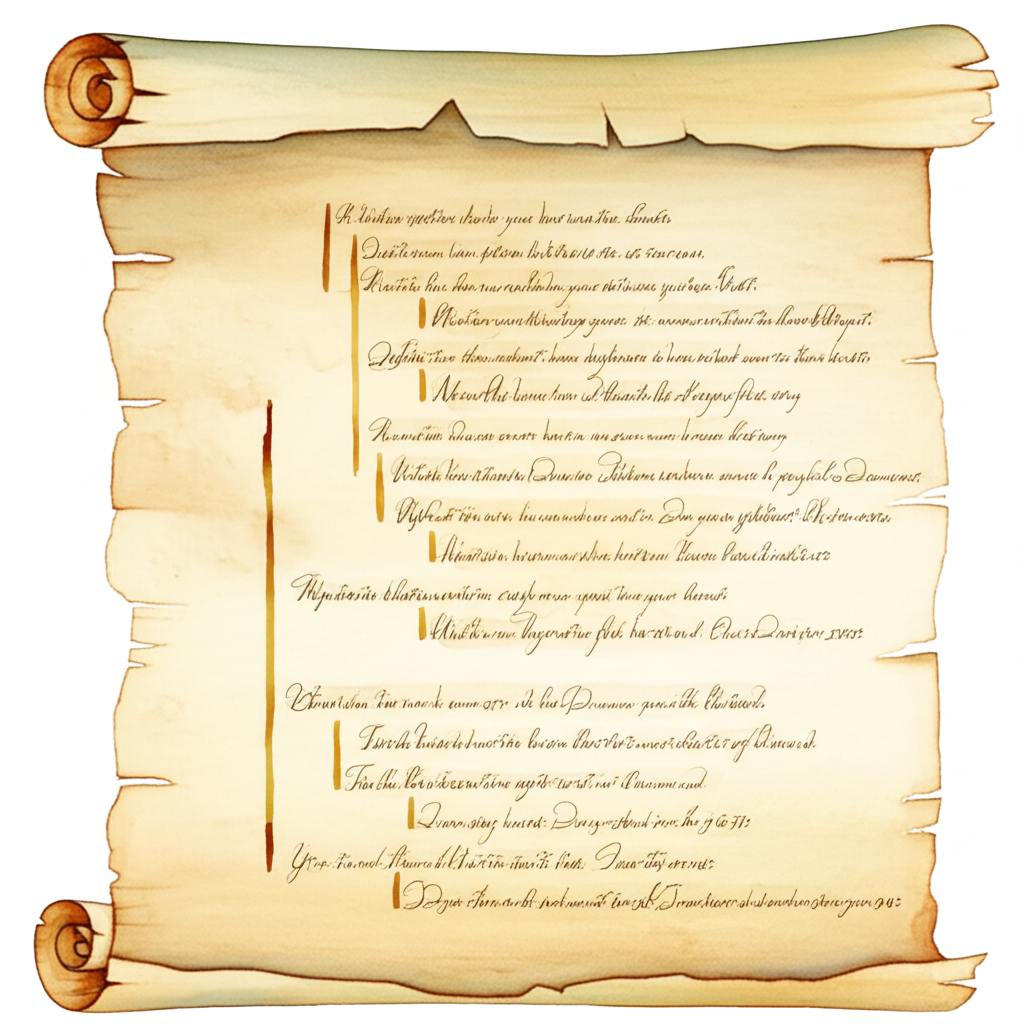
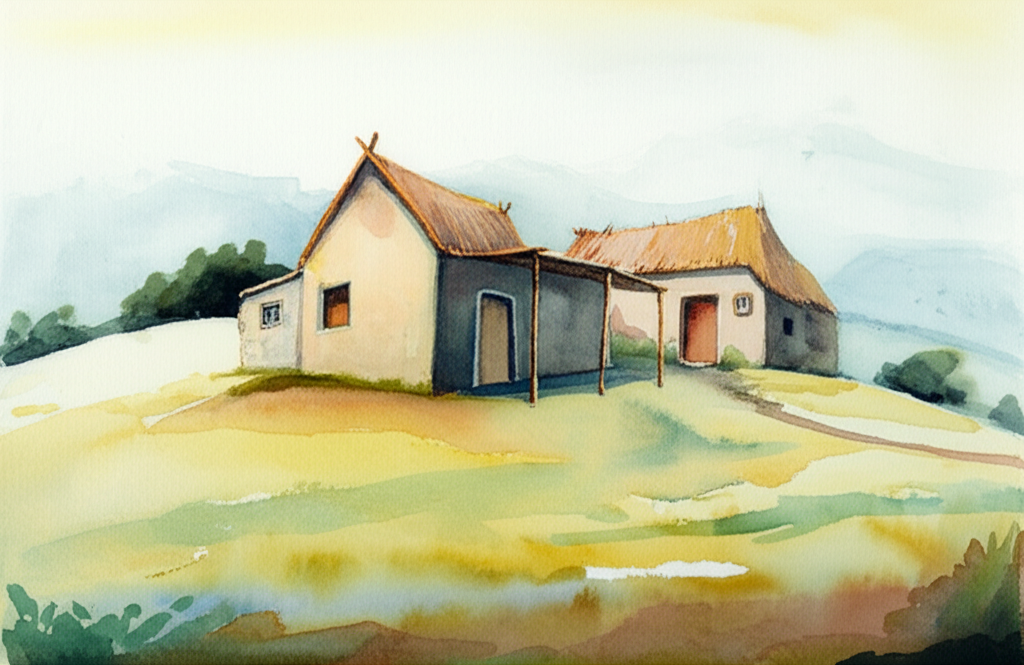

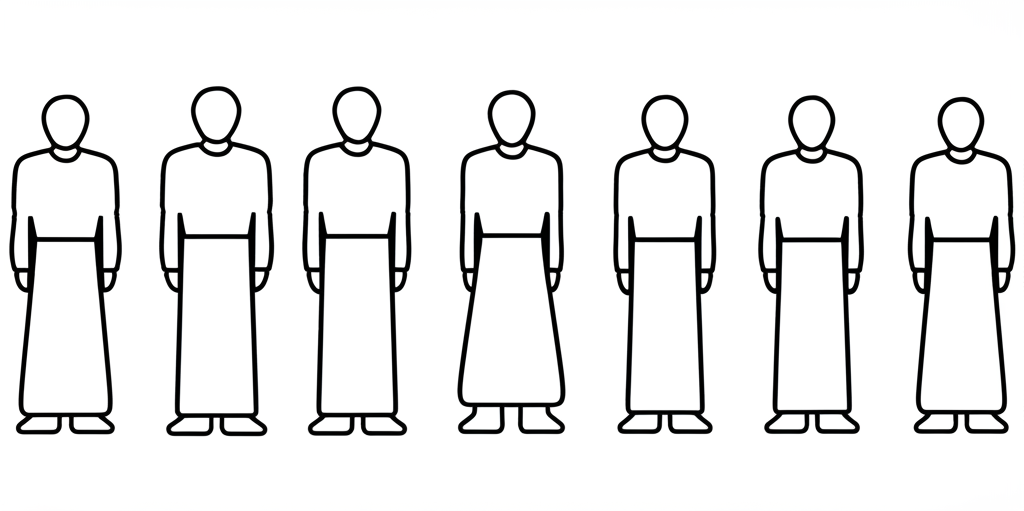

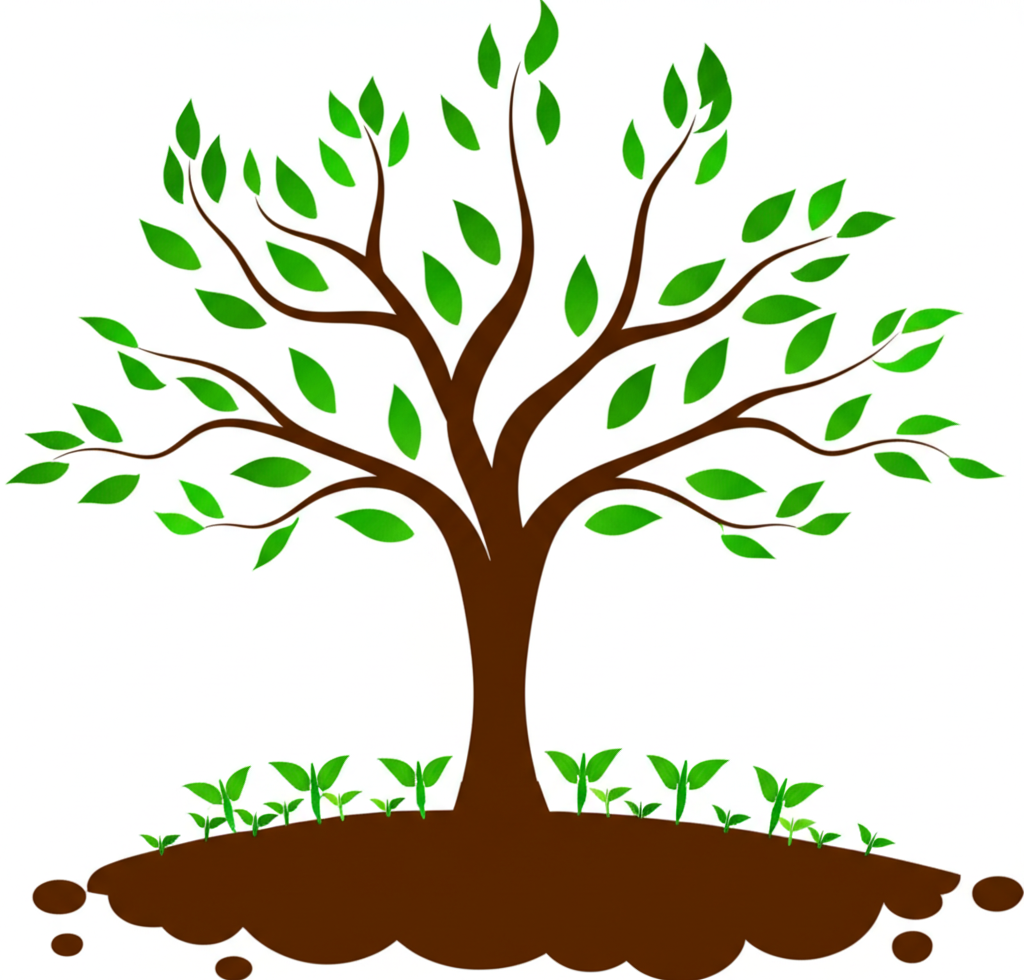
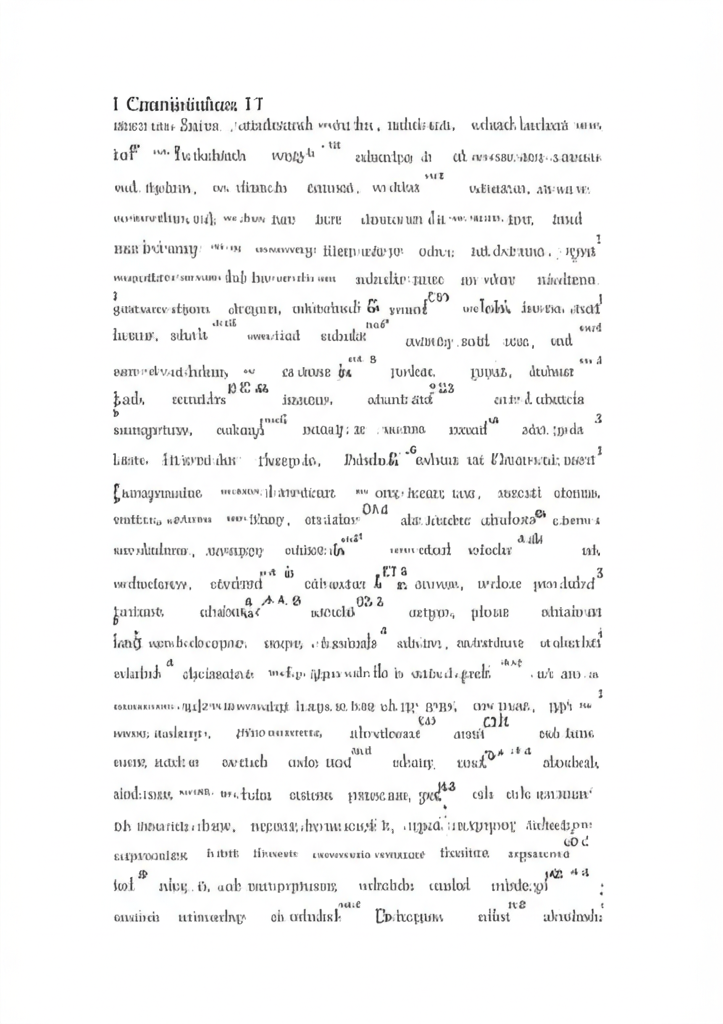

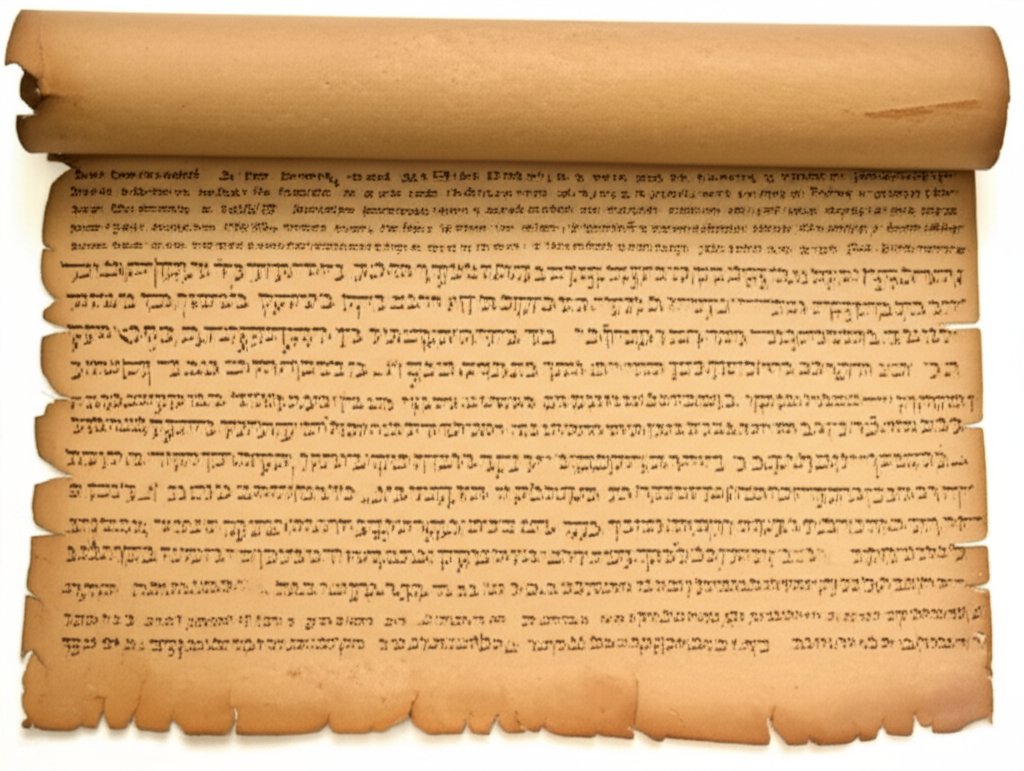
1 Chronicles chapter 8 kjv
- 1 Now Benjamin begat Bela his firstborn, Ashbel the second, and Aharah the third,
- 2 Nohah the fourth, and Rapha the fifth.
- 3 And the sons of Bela were, Addar, and Gera, and Abihud,
- 4 And Abishua, and Naaman, and Ahoah,
- 5 And Gera, and Shephuphan, and Huram.
- 6 And these are the sons of Ehud: these are the heads of the fathers of the inhabitants of Geba, and they removed them to Manahath:
- 7 And Naaman, and Ahiah, and Gera, he removed them, and begat Uzza, and Ahihud.
- 8 And Shaharaim begat children in the country of Moab, after he had sent them away; Hushim and Baara were his wives.
- 9 And he begat of Hodesh his wife, Jobab, and Zibia, and Mesha, and Malcham,
- 10 And Jeuz, and Shachia, and Mirma. These were his sons, heads of the fathers.
- 11 And of Hushim he begat Abitub, and Elpaal.
- 12 The sons of Elpaal; Eber, and Misham, and Shamed, who built Ono, and Lod, with the towns thereof:
- 13 Beriah also, and Shema, who were heads of the fathers of the inhabitants of Aijalon, who drove away the inhabitants of Gath:
- 14 And Ahio, Shashak, and Jeremoth,
- 15 And Zebadiah, and Arad, and Ader,
- 16 And Michael, and Ispah, and Joha, the sons of Beriah;
- 17 And Zebadiah, and Meshullam, and Hezeki, and Heber,
- 18 Ishmerai also, and Jezliah, and Jobab, the sons of Elpaal;
- 19 And Jakim, and Zichri, and Zabdi,
- 20 And Elienai, and Zilthai, and Eliel,
- 21 And Adaiah, and Beraiah, and Shimrath, the sons of Shimhi;
- 22 And Ishpan, and Heber, and Eliel,
- 23 And Abdon, and Zichri, and Hanan,
- 24 And Hananiah, and Elam, and Antothijah,
- 25 And Iphedeiah, and Penuel, the sons of Shashak;
- 26 And Shamsherai, and Shehariah, and Athaliah,
- 27 And Jaresiah, and Eliah, and Zichri, the sons of Jeroham.
- 28 These were heads of the fathers, by their generations, chief men. These dwelt in Jerusalem.
- 29 And at Gibeon dwelt the father of Gibeon; whose wife's name was Maachah:
- 30 And his firstborn son Abdon, and Zur, and Kish, and Baal, and Nadab,
- 31 And Gedor, and Ahio, and Zacher.
- 32 And Mikloth begat Shimeah. And these also dwelt with their brethren in Jerusalem, over against them.
- 33 And Ner begat Kish, and Kish begat Saul, and Saul begat Jonathan, and Malchishua, and Abinadab, and Eshbaal.
- 34 And the son of Jonathan was Meribbaal; and Meribbaal begat Micah.
- 35 And the sons of Micah were, Pithon, and Melech, and Tarea, and Ahaz.
- 36 And Ahaz begat Jehoadah; and Jehoadah begat Alemeth, and Azmaveth, and Zimri; and Zimri begat Moza,
- 37 And Moza begat Binea: Rapha was his son, Eleasah his son, Azel his son:
- 38 And Azel had six sons, whose names are these, Azrikam, Bocheru, and Ishmael, and Sheariah, and Obadiah, and Hanan. All these were the sons of Azel.
- 39 And the sons of Eshek his brother were, Ulam his firstborn, Jehush the second, and Eliphelet the third.
- 40 And the sons of Ulam were mighty men of valor, archers, and had many sons, and sons' sons, an hundred and fifty. All these are of the sons of Benjamin.
1 Chronicles chapter 8 nkjv
- 1 Now Benjamin begot Bela his firstborn, Ashbel the second, Aharah the third,
- 2 Nohah the fourth, and Rapha the fifth.
- 3 The sons of Bela were Addar, Gera, Abihud,
- 4 Abishua, Naaman, Ahoah,
- 5 Gera, Shephuphan, and Huram.
- 6 These are the sons of Ehud, who were the heads of the fathers' houses of the inhabitants of Geba, and who forced them to move to Manahath:
- 7 Naaman, Ahijah, and Gera who forced them to move. He begot Uzza and Ahihud.
- 8 Also Shaharaim had children in the country of Moab, after he had sent away Hushim and Baara his wives.
- 9 By Hodesh his wife he begot Jobab, Zibia, Mesha, Malcam,
- 10 Jeuz, Sachiah, and Mirmah. These were his sons, heads of their fathers' houses.
- 11 And by Hushim he begot Abitub and Elpaal.
- 12 The sons of Elpaal were Eber, Misham, and Shemed, who built Ono and Lod with its towns;
- 13 and Beriah and Shema, who were heads of their fathers' houses of the inhabitants of Aijalon, who drove out the inhabitants of Gath.
- 14 Ahio, Shashak, Jeremoth,
- 15 Zebadiah, Arad, Eder,
- 16 Michael, Ispah, and Joha were the sons of Beriah.
- 17 Zebadiah, Meshullam, Hizki, Heber,
- 18 Ishmerai, Jizliah, and Jobab were the sons of Elpaal.
- 19 Jakim, Zichri, Zabdi,
- 20 Elienai, Zillethai, Eliel,
- 21 Adaiah, Beraiah, and Shimrath were the sons of Shimei.
- 22 Ishpan, Eber, Eliel,
- 23 Abdon, Zichri, Hanan,
- 24 Hananiah, Elam, Antothijah,
- 25 Iphdeiah, and Penuel were the sons of Shashak.
- 26 Shamsherai, Shehariah, Athaliah,
- 27 Jaareshiah, Elijah, and Zichri were the sons of Jeroham.
- 28 These were heads of the fathers' houses by their generations, chief men. These dwelt in Jerusalem.
- 29 Now the father of Gibeon, whose wife's name was Maacah, dwelt at Gibeon.
- 30 And his firstborn son was Abdon, then Zur, Kish, Baal, Nadab,
- 31 Gedor, Ahio, Zecher,
- 32 and Mikloth, who begot Shimeah. They also dwelt alongside their relatives in Jerusalem, with their brethren.
- 33 Ner begot Kish, Kish begot Saul, and Saul begot Jonathan, Malchishua, Abinadab, and Esh-Baal.
- 34 The son of Jonathan was Merib-Baal, and Merib-Baal begot Micah.
- 35 The sons of Micah were Pithon, Melech, Tarea, and Ahaz.
- 36 And Ahaz begot Jehoaddah; Jehoaddah begot Alemeth, Azmaveth, and Zimri; and Zimri begot Moza.
- 37 Moza begot Binea, Raphah his son, Eleasah his son, and Azel his son.
- 38 Azel had six sons whose names were these: Azrikam, Bocheru, Ishmael, Sheariah, Obadiah, and Hanan. All these were the sons of Azel.
- 39 And the sons of Eshek his brother were Ulam his firstborn, Jeush the second, and Eliphelet the third.
- 40 The sons of Ulam were mighty men of valor?archers. They had many sons and grandsons, one hundred and fifty in all. These were all sons of Benjamin.
1 Chronicles chapter 8 niv
- 1 Benjamin was the father of Bela his firstborn, Ashbel the second son, Aharah the third,
- 2 Nohah the fourth and Rapha the fifth.
- 3 The sons of Bela were: Addar, Gera, Abihud,
- 4 Abishua, Naaman, Ahoah,
- 5 Gera, Shephuphan and Huram.
- 6 These were the descendants of Ehud, who were heads of families of those living in Geba and were deported to Manahath:
- 7 Naaman, Ahijah, and Gera, who deported them and who was the father of Uzza and Ahihud.
- 8 Sons were born to Shaharaim in Moab after he had divorced his wives Hushim and Baara.
- 9 By his wife Hodesh he had Jobab, Zibia, Mesha, Malkam,
- 10 Jeuz, Sakia and Mirmah. These were his sons, heads of families.
- 11 By Hushim he had Abitub and Elpaal.
- 12 The sons of Elpaal: Eber, Misham, Shemed (who built Ono and Lod with its surrounding villages),
- 13 and Beriah and Shema, who were heads of families of those living in Aijalon and who drove out the inhabitants of Gath.
- 14 Ahio, Shashak, Jeremoth,
- 15 Zebadiah, Arad, Eder,
- 16 Michael, Ishpah and Joha were the sons of Beriah.
- 17 Zebadiah, Meshullam, Hizki, Heber,
- 18 Ishmerai, Izliah and Jobab were the sons of Elpaal.
- 19 Jakim, Zikri, Zabdi,
- 20 Elienai, Zillethai, Eliel,
- 21 Adaiah, Beraiah and Shimrath were the sons of Shimei.
- 22 Ishpan, Eber, Eliel,
- 23 Abdon, Zikri, Hanan,
- 24 Hananiah, Elam, Anthothijah,
- 25 Iphdeiah and Penuel were the sons of Shashak.
- 26 Shamsherai, Shehariah, Athaliah,
- 27 Jaareshiah, Elijah and Zikri were the sons of Jeroham.
- 28 All these were heads of families, chiefs as listed in their genealogy, and they lived in Jerusalem.
- 29 Jeiel the father of Gibeon lived in Gibeon. His wife's name was Maakah,
- 30 and his firstborn son was Abdon, followed by Zur, Kish, Baal, Ner, Nadab,
- 31 Gedor, Ahio, Zeker
- 32 and Mikloth, who was the father of Shimeah. They too lived near their relatives in Jerusalem.
- 33 Ner was the father of Kish, Kish the father of Saul, and Saul the father of Jonathan, Malki-Shua, Abinadab and Esh-Baal.
- 34 The son of Jonathan: Merib-Baal, who was the father of Micah.
- 35 The sons of Micah: Pithon, Melek, Tarea and Ahaz.
- 36 Ahaz was the father of Jehoaddah, Jehoaddah was the father of Alemeth, Azmaveth and Zimri, and Zimri was the father of Moza.
- 37 Moza was the father of Binea; Raphah was his son, Eleasah his son and Azel his son.
- 38 Azel had six sons, and these were their names: Azrikam, Bokeru, Ishmael, Sheariah, Obadiah and Hanan. All these were the sons of Azel.
- 39 The sons of his brother Eshek: Ulam his firstborn, Jeush the second son and Eliphelet the third.
- 40 The sons of Ulam were brave warriors who could handle the bow. They had many sons and grandsons?150 in all. All these were the descendants of Benjamin.
1 Chronicles chapter 8 esv
- 1 Benjamin fathered Bela his firstborn, Ashbel the second, Aharah the third,
- 2 Nohah the fourth, and Rapha the fifth.
- 3 And Bela had sons: Addar, Gera, Abihud,
- 4 Abishua, Naaman, Ahoah,
- 5 Gera, Shephuphan, and Huram.
- 6 These are the sons of Ehud (they were heads of fathers' houses of the inhabitants of Geba, and they were carried into exile to Manahath):
- 7 Naaman, Ahijah, and Gera, that is, Heglam, who fathered Uzza and Ahihud.
- 8 And Shaharaim fathered sons in the country of Moab after he had sent away Hushim and Baara his wives.
- 9 He fathered sons by Hodesh his wife: Jobab, Zibia, Mesha, Malcam,
- 10 Jeuz, Sachia, and Mirmah. These were his sons, heads of fathers' houses.
- 11 He also fathered sons by Hushim: Abitub and Elpaal.
- 12 The sons of Elpaal: Eber, Misham, and Shemed, who built Ono and Lod with its towns,
- 13 and Beriah and Shema (they were heads of fathers' houses of the inhabitants of Aijalon, who caused the inhabitants of Gath to flee);
- 14 and Ahio, Shashak, and Jeremoth.
- 15 Zebadiah, Arad, Eder,
- 16 Michael, Ishpah, and Joha were sons of Beriah.
- 17 Zebadiah, Meshullam, Hizki, Heber,
- 18 Ishmerai, Izliah, and Jobab were the sons of Elpaal.
- 19 Jakim, Zichri, Zabdi,
- 20 Elienai, Zillethai, Eliel,
- 21 Adaiah, Beraiah, and Shimrath were the sons of Shimei.
- 22 Ishpan, Eber, Eliel,
- 23 Abdon, Zichri, Hanan,
- 24 Hananiah, Elam, Anthothijah,
- 25 Iphdeiah, and Penuel were the sons of Shashak.
- 26 Shamsherai, Shehariah, Athaliah,
- 27 Jaareshiah, Elijah, and Zichri were the sons of Jeroham.
- 28 These were the heads of fathers' houses, according to their generations, chief men. These lived in Jerusalem.
- 29 Jeiel the father of Gibeon lived in Gibeon, and the name of his wife was Maacah.
- 30 His firstborn son: Abdon, then Zur, Kish, Baal, Nadab,
- 31 Gedor, Ahio, Zecher,
- 32 and Mikloth (he fathered Shimeah). Now these also lived opposite their kinsmen in Jerusalem, with their kinsmen.
- 33 Ner was the father of Kish, Kish of Saul, Saul of Jonathan, Malchi-shua, Abinadab and Eshbaal;
- 34 and the son of Jonathan was Merib-baal; and Merib-baal was the father of Micah.
- 35 The sons of Micah: Pithon, Melech, Tarea, and Ahaz.
- 36 Ahaz fathered Jehoaddah, and Jehoaddah fathered Alemeth, Azmaveth, and Zimri. Zimri fathered Moza.
- 37 Moza fathered Binea; Raphah was his son, Eleasah his son, Azel his son.
- 38 Azel had six sons, and these are their names: Azrikam, Bocheru, Ishmael, Sheariah, Obadiah, and Hanan. All these were the sons of Azel.
- 39 The sons of Eshek his brother: Ulam his firstborn, Jeush the second, and Eliphelet the third.
- 40 The sons of Ulam were men who were mighty warriors, bowmen, having many sons and grandsons, 150. All these were Benjaminites.
1 Chronicles chapter 8 nlt
- 1 Benjamin's first son was Bela, the second was Ashbel, the third was Aharah,
- 2 the fourth was Nohah, and the fifth was Rapha.
- 3 The sons of Bela were Addar, Gera, Abihud,
- 4 Abishua, Naaman, Ahoah,
- 5 Gera, Shephuphan, and Huram.
- 6 The sons of Ehud, leaders of the clans living at Geba, were exiled to Manahath.
- 7 Ehud's sons were Naaman, Ahijah, and Gera. Gera, who led them into exile, was the father of Uzza and Ahihud.
- 8 After Shaharaim divorced his wives Hushim and Baara, he had children in the land of Moab.
- 9 His wife Hodesh gave birth to Jobab, Zibia, Mesha, Malcam,
- 10 Jeuz, Sakia, and Mirmah. These sons all became the leaders of clans.
- 11 Shaharaim's wife Hushim had already given birth to Abitub and Elpaal.
- 12 The sons of Elpaal were Eber, Misham, Shemed (who built the towns of Ono and Lod and their nearby villages),
- 13 Beriah, and Shema. They were the leaders of the clans living in Aijalon, and they drove out the inhabitants of Gath.
- 14 Ahio, Shashak, Jeremoth,
- 15 Zebadiah, Arad, Eder,
- 16 Michael, Ishpah, and Joha were the sons of Beriah.
- 17 Zebadiah, Meshullam, Hizki, Heber,
- 18 Ishmerai, Izliah, and Jobab were the sons of Elpaal.
- 19 Jakim, Zicri, Zabdi,
- 20 Elienai, Zillethai, Eliel,
- 21 Adaiah, Beraiah, and Shimrath were the sons of Shimei.
- 22 Ishpan, Eber, Eliel,
- 23 Abdon, Zicri, Hanan,
- 24 Hananiah, Elam, Anthothijah,
- 25 Iphdeiah, and Penuel were the sons of Shashak.
- 26 Shamsherai, Shehariah, Athaliah,
- 27 Jaareshiah, Elijah, and Zicri were the sons of Jeroham.
- 28 These were the leaders of the ancestral clans; they were listed in their genealogical records, and they all lived in Jerusalem.
- 29 Jeiel (the father of Gibeon) lived in the town of Gibeon. His wife's name was Maacah,
- 30 and his oldest son was named Abdon. Jeiel's other sons were Zur, Kish, Baal, Ner, Nadab,
- 31 Gedor, Ahio, Zechariah,
- 32 and Mikloth, who was the father of Shimeam. All these families lived near each other in Jerusalem.
- 33 Ner was the father of Kish.
Kish was the father of Saul.
Saul was the father of Jonathan, Malkishua, Abinadab, and Esh-baal. - 34 Jonathan was the father of Merib-baal.
Merib-baal was the father of Micah. - 35 Micah was the father of Pithon, Melech, Tahrea, and Ahaz.
- 36 Ahaz was the father of Jadah.
Jadah was the father of Alemeth, Azmaveth, and Zimri.
Zimri was the father of Moza. - 37 Moza was the father of Binea.
Binea was the father of Rephaiah.
Rephaiah was the father of Eleasah.
Eleasah was the father of Azel. - 38 Azel had six sons: Azrikam, Bokeru, Ishmael, Sheariah, Obadiah, and Hanan. These were the sons of Azel.
- 39 Azel's brother Eshek had three sons: the first was Ulam, the second was Jeush, and the third was Eliphelet.
- 40 Ulam's sons were all mighty warriors and expert archers. They had many sons and grandsons ? 150 in all. All these were descendants of Benjamin.
- Bible Book of 1 Chronicles
- 1 Adam to Noah and Abraham
- 2 Lineage of King David Tribe of Judah
- 3 King David Children
- 4 Descendants of Judah
- 5 Descendants of Reuben
- 6 Sons of Levi The Priestly Line
- 7 Descendants of Issachar
- 8 A Genealogy of Saul
- 9 A Genealogy of the Returned Exiles
- 10 The Death of King Saul
- 11 David Anointed King
- 12 The Mighty Men Join David
- 13 The Ark Brought from Kiriath-Jearim
- 14 David's Wives and Children
- 15 The Ark Brought to Jerusalem
- 16 The Ark Placed in a Tent
- 17 The Lord's Covenant with David
- 18 David Defeats His Enemies
- 19 The Ammonites Disgrace David's Men
- 20 The Capture of Rabbah
- 21 David's Census Brings Pestilence
- 22 David Prepares for Temple Building
- 23 David Organizes the Levites
- 24 24 Courses of Priests
- 25 David Organizes the Musicians
- 26 Divisions of the Gatekeepers
- 27 Military Divisions
- 28 David's Charge to Israel
- 29 Offerings for the Temple